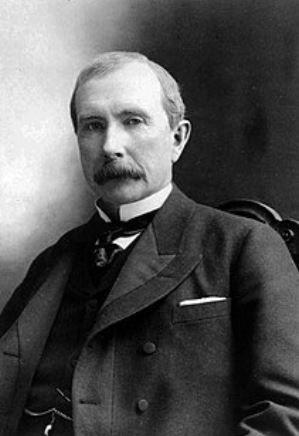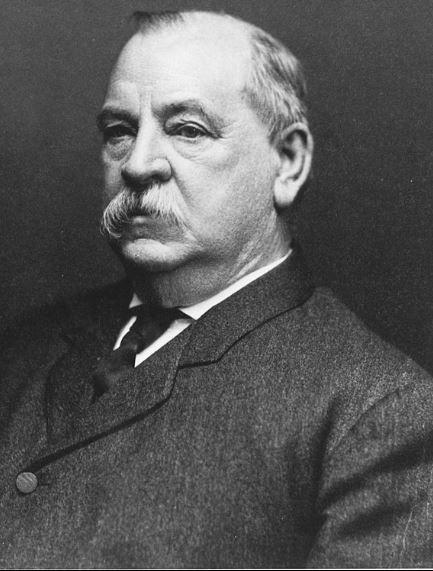INTUSK MAGAZINE
TO THE CORE OF YOUR HEART
Augustus Caesar
April 5, 2023
Augustus Caesar, who is also called Octavian, was the first Roman emperor and also the founder of the Roman Principate.
Early Life
He was born on 23 December 63 BC, originally named as Gaius Octavius. He was the son of the governor of Macedonia, Gaius Octavius and Atia, who was the niece of Julius Caesar.
Octavian’s father dies in 59 BC when he was four years old and then his mother married Lucius Marcius Philippus, who was a former governor of Syria. As Philippus had no much interest on Octavian, Julius Caesar’s sister, Julia, grandmother of Octavian raised him until her death. Later he was raised by his mother and step father.
In 47 BC, he was elected to the College of Pontiff and the following year he was put in charge of Greek Games that were staged in honor of the Temple of Venus Genetrix built by Julius Caesar.
Rise to Power
When Octavian was at Apollonia completing his academic and military studies, in 44 BC, he learned that Julius Caesar had been murdered.
With the news of Caesar’s assassination, Octavian returned to Italy, rejecting the advices of some army officers to take refuge with the troops in Macedonia.
Returning to Italy, he was told that Caesar in his will had adopted him as his son and had made him his chief personal heir, as Caesar had no living legitimate children under Roman law. Upon his adoption, Octavius assumed his great-uncle's name Gaius Julius Caesar.
Octavius succeeded in winning considerable numbers of the Caesar’s troops to his own allegiance On his march to Rome through Italy, Octavian's presence and newly acquired funds attracted many, winning over Caesar's former veterans stationed in Campania. By June, he had gathered an army of 3,000 loyal veterans, paying each a salary of 500 denarii.
Arriving in Rome on 6 May 44 BC, Octavian found consul Mark Antony, Caesar's former colleague, in an uneasy truce with the dictator's assassins. Antony had lost the support of many Romans and supporters of Caesar when he initially opposed the motion to elevate Caesar to divine status.
Julius Caesar’s chief lieutenant, Mark Anthony (Marcus Antonius) who had taken possession of his papers and assets and had expected that he himself would be the principal heir, refused to hand over any of Caesar’s funds, forcing Octavius to pay the late dictator’s bequests to the Roman populace from such resources as he could raise.
With opinion in Rome turning against him and his year of consular power nearing its end, Antony attempted to pass laws that would assign him the province of Cisalpine Gaule. Octavian meanwhile built up a private army in Italy by recruiting Caesarian veterans, and on 28 November he won over two of Antony's legions with the enticing offer of monetary gain.
In the face of Octavian's large and capable force, Antony saw the danger of staying in Rome and, to the relief of the Senate, he left Rome for Cisalpine Gaul, which was to be handed to him on 1 January.
However, the province had earlier been assigned to Decimus Junius Brutus Albinus, refused to yield to Antony. Antony besieged him at Mutina and rejected the resolutions passed by the Senate to stop the fighting.
As the senate had no army to enforce their resolutions, at the urging of Marcus Tullius Cisero, the senate called upon Octavian for aid (granting him the rank of senator in spite of his youth), and joined the campaign of Mutina (Modena) against Antony, who was compelled to withdraw to Gaul.
In July, an embassy of centurions sent by Octavian entered Rome and demanded the consulship left vacant by Hirtius and Pansa and also that the decree should be rescinded which declared Antony a public enemy.When this was refused, he marched on the city with eight legions.He encountered no military opposition in Rome and on 19 August 43 BC was elected consul with his relative Quintus Pedius as co-consul. Meanwhile, Antony formed an alliance with Marcus Aemilius Lepidus,another leading Caesarian.[70]
Octavian soon reached an agreement with Antony and with Lepidus.
On November 27, 43 BCE, the three men were formally given a five-year dictatorial appointment as triumvirs for the reconstitution of the state also known as the Second Triumvirate (the first having been the informal compact between Pompey, Crassus, and Julius Caesar).
The triumvirs then set in motion proscriptions, in which between 130 and 300 senators and 2,000 equites were branded as outlaws and deprived of their property and, for those who failed to escape, their lives. This decree issued by the triumvirate was motivated in part by a need to raise money to pay the salaries of their troops for the upcoming conflict against Caesar's assassins, Marcus Junius Brutus and Gaius Cassius Longinus.
Antony and Octavian then sent 28 legions by sea to face the armies of Brutus and Cassius, who had built their base of power in Greece. After two battles at Philippi in Macedonia in October 42, the Caesarian army was victorious and Brutus and Cassius committed suicide.
After Philippi, a new territorial arrangement was made among the members of the Second Triumvirate. Gaul and the province of Hispania were placed in the hands of Octavian. Antony traveled east to Egypt where he allied himself with Queen Cleopatra, Lepidus was left with the province of Africa, stymied by Antony, who conceded Hispania to Octavian instead.
Rebellions and Marriage Alliances
Meanwhile, Octavian asked for a divorce from Claudia, the daughter of Fulvia and her first husband Publius Clodius Pulcher. Fulvia decided to take action. Together with Lucius Antonius (Mark Anthony’s brother), she raised an army in Italy to fight for Antony's rights against Octavian. Lucius and his allies ended up in a defensive siege at Perusia where Octavian forced them into surrender in early 40 BC.
Lucius and his army were spared because of his kinship with Antony, the strongman of the East, while Fulvia was exiled to Sicyon. On 15 March, the anniversary of Julius Caesar's assassination, he had 300 Roman senators and equestrians executed for allying with Lucius.
In order to appease another potential enemy,Sextus Pompeius (Pompey the Great’s son), who had seized Sicily and the sea routes, Octavian married Sextus’s relative Scribonia, who gave birth to Octavian's only natural child, Julia the same day that he divorced her to marry Livia Drusilla.
Aware of his deteriorating relationship with Octavian, Antony left Cleopatra; he sailed to Italy in 40 BC with a large force to oppose Octavian, laying siege to Brundisium. This new conflict proved untenable for both Octavian and Antony, however. Their centurions, who had become important figures politically, refused to fight because of their Caesarian cause, while the legions under their command followed suit.
In the autumn of 40, Octavian and Antony approved the Treaty of Brundisium, by which Lepidus would remain in Africa, Antony in the East, Octavian in the West. The Italia Peninsula was left open to all for the recruitment of soldiers. To further cement relations of alliance with Antony, Octavian gave his sister, Octavia Minor, in marriage to Antony in late 40 BC.
But a reconciliation with Sextus Pompeius proved abortive, and Octavian was soon plunged into serious warfare against him. When his first operations against Sextus’s Sicilian bases proved disastrous, he felt obliged to make a new compact with Antony at Tarentum (Taranto) in 37 BCE. Antony was to provide Octavian with ships, in return for troops Antony needed for his forthcoming war against the empire’s eastern neighbor Parthia and its Median allies. Antony handed over the ships, but Octavian sent only a tenth of those promised. The treaty also provided for renewal of the Second Triumvirate for five years.
In the following year, Antony’s eastern expedition failed while Octavian’s fleet—commanded by his former schoolmate Marcus Agrippa, totally defeated Sextus Pompeius off Cape Naulochus.
At this point the third triumvir, Lepidus, seeking to contest Octavian’s supremacy in the west by force, was disarmed by Octavian, deprived of his triumviral office, and forced into retirement.
War with Antony and Cleopatra
The breach between Antony and Octavian prompted a large portion of the senators, as well as both of that year's consuls, to leave Rome and defect to Antony. However, Octavian received two key deserters from Antony in the autumn of 32 BC: Munatius Plancus and Marcus Titius. These defectors gave Octavian the information that he needed to confirm with the Senate all the accusations that he made against Antony.
Then Octavian forcibly entered the temple of the Vestal Virgins seized Antony's secret will, which he promptly publicized. The will would have given away Roman-conquered territories as kingdoms for his sons to rule and designated Alexandria as the site for a tomb for him and his queen.
In late 32 BC, the Senate officially revoked Antony's powers as consul and declared war on Cleopatra's regime in Egypt.
In early 31 BC, Antony and Cleopatra were temporarily stationed in Greece when Octavian gained a preliminary victory: the navy successfully ferried troops across the Adriatic Sea under the command of Agrippa. Agrippa cut off Antony and Cleopatra's main force from their supply routes at sea, while Octavian landed on the mainland opposite the island of Corcyra and marched south. Trapped on land and sea, deserters of Antony's army fled to Octavian's side daily while Octavian's forces were comfortable enough to make preparations.
Antony's fleet sailed through the bay of Actium on the western coast of Greece in a desperate attempt to break free of the naval blockade. Antony and his remaining forces were spared by a last-ditch effort from Cleopatra's fleet that had been waiting nearby.
Octavian pursued them and defeated their forces in Alexandria on 1 August 30 BC—after which Antony and Cleopatra committed suicide. Executing Cleopatra’s son Ptolemy XV Caesar (Caesarion), father she had claimed was Caesar, Octavian annexed Egypt and retained it under his direct control.
The Sole Ruler of Rome
The seizure of Cleopatra’s treasure enabled him to pay off his veterans and made him finally master of the entire Greco-Roman world. From this point on, by a long and gradual series of tentative, patient measures, he established the Roman principate, a system of government that enabled him to maintain, in all essentials, absolute control.
On 13 January 27 BC, Octavian made a show of returning full power to the Roman Senate and relinquishing his control of the Roman provinces and their armies. Under his consulship, however, the Senate had little power in initiating legislation by introducing bills for senatorial debate. Octavian was no longer in direct control of the provinces and their armies, but he retained the loyalty of active duty soldiers and veterans alike.
While Octavian acted as consul in Rome, he dispatched senators to the provinces under his command as his representatives to manage provincial affairs and ensure that his orders were carried out. The provinces not under Octavian's control were overseen by governors chosen by the Roman Senate.
The Senate had control of only five or six legions distributed among three senatorial proconsuls, compared to the twenty legions under the control of Octavian. So their control of these regions did not amount to any political or military challenge to Octavian.
On 16 January 27 BC the Senate gave Octavian the titles of augustus and princeps. Augustus is from the Latin word “augere” (meaning to increase) and can be translated as "the illustrious one".
Augustus chose ‘Imperator ‘("victorious commander") to be his first name, since he wanted to make an emphatically clear connection between himself and the notion of victory, and consequently became known as ‘Imperator Caesar Divi Filius Augustus’.
Military operations continued in many frontier areas. By the end of his reign, the armies of Augustus had conquered northern Hispania (modern Spain and Portugal) and the Alpine regions of Raetia and Noricum (modern Switzerland, Bavaria, Austria, Slovenia),Illyricum and Pannonia (modern Albania, Croatia, Hungary, Serbia, etc.), and had extended the borders of Africa Proconsularis to the east and south. Judea was added to the province of Syria when Augustus deposed Herod Archelaus, successor to king Herod the Great.
Death and Succession
The illness of Augustus in 23 BC brought the problem of succession to the forefront of political issues and the public. To ensure stability, he needed to designate an heir to his unique position in Roman society and government.
Some Augustan historians argue that indications pointed toward his sister's son Marcellus, who had been quickly married to Augustus's daughter Julia the Elder.
After the death of Marcellus in 23 BC, Augustus married his daughter to Agrippa. This union produced five children, three sons and two daughters: Gaius Caesar, Lucius Caesar, Vipsania Julia, Agrippina and Agrippa Postumus.
Augustus's intent became apparent to make Gaius and Lucius Caesar his heirs when he adopted them as his own children.
Augustus also showed favor to his stepsons, Livia's children from her first marriage Nero Claudius Drusus Germanicus and Tiberius Claudius.
After Agrippa died in 12 BC, Tiberius was ordered to divorce his own wife Vipsania Agrippina and marry Agrippa's widow, Augustus's daughter Julia—as soon as a period of mourning for Agrippa had ended.
After the deaths of both Lucius and Gaius in AD 2 and 4 respectively, and the earlier death of his brother Drusus (9 BC), Tiberius was recalled to Rome in June AD 4, where he was adopted by Augustus on the condition that he, in turn, adopt his nephew Germanicus.
In that year, Tiberius was also granted the powers of a tribune and proconsul, emissaries from foreign kings had to pay their respects to him and by AD 13 was awarded with his second triumph and equal level of imperium with that of Augustus.
On 19 August AD 14, Augustus died while visiting Nola, where his father had died. . Augustus's health had been in decline in the months immediately before his death, and he had made significant preparations for a smooth transition in power, having at last reluctantly settled on Tiberius as his choice of heir.
Legacy of Octavian
Many consider Augustus to be Rome's greatest emperor; his policies certainly extended the empire's life span and initiated the celebrated Pax Romana or Pax Augusta.
With his finances securing the maintenance of roads throughout Italy, Augustus installed an official courier system of relay stations overseen by a military officer known as the praefectus vehiculorum.
With Rome's civil wars at an end, Augustus was also able to create a standing army for the Roman Empire, fixed at a size of 28 legions of about 170,000 soldiers
In the year 29 BC, Augustus gave 400 sesterces (equal to 1/10 of a Roman pound of gold) each to 250,000 citizens, 1,000 sesterces each to 120,000 veterans in the colonies, and spent 700 million sesterces in purchasing land for his soldiers to settle upon.
Augustus's public revenue reforms had a great impact on the subsequent success of the Empire. Augustus brought a far greater portion of the Empire's expanded land base under consistent, direct taxation from Rome, instead of exacting varying, intermittent, and somewhat arbitrary tributes from each local province as Augustus's predecessors had done.
The measures of taxation in the reign of Augustus were determined by population census, with fixed quotas for each province. Citizens of Rome and Italy paid indirect taxes, while direct taxes were exacted from the provinces. Indirect taxes included a 4% tax on the price of slaves, a 1% tax on goods sold at auction, and a 5% tax on the inheritance of estates valued at over 100,000 sesterces by persons other than the next of kin.
The month of August (Latin: Augustus) is named after Augustus; until his time it was calle Sexstilis (named so because it had been the sixth month of the original Roman calander and the Latin word for six is sex).
Roman Italy was established by Augustus in 7 BC with the Latin name "Italia". This was the first time that the Italian peninsula was united administratively and politically under the same name.



